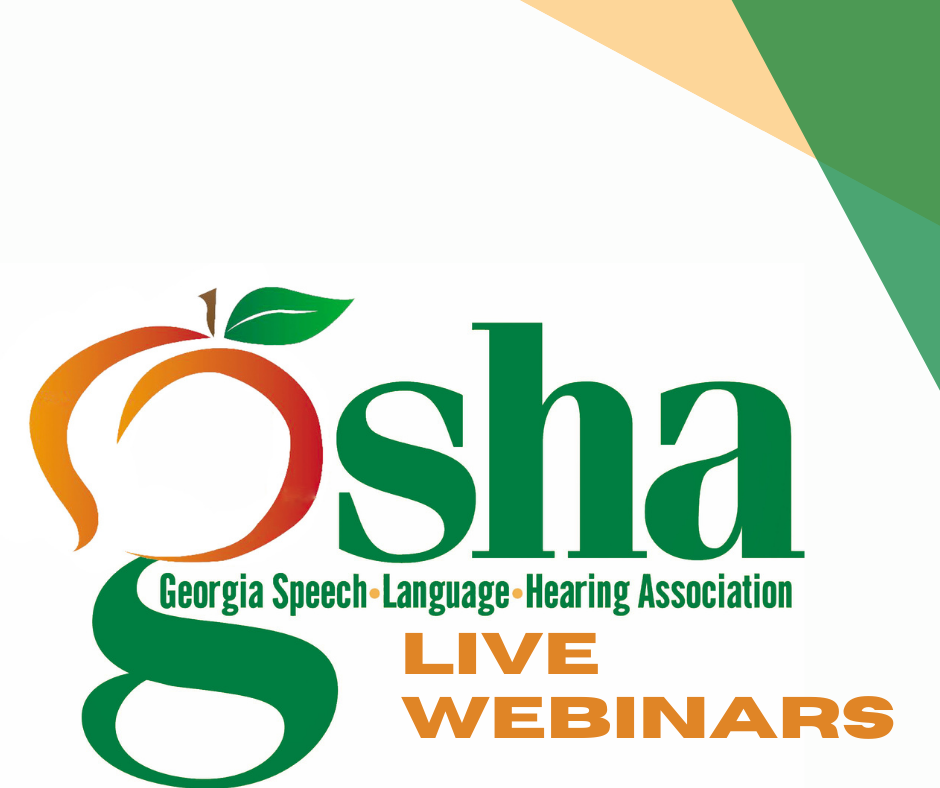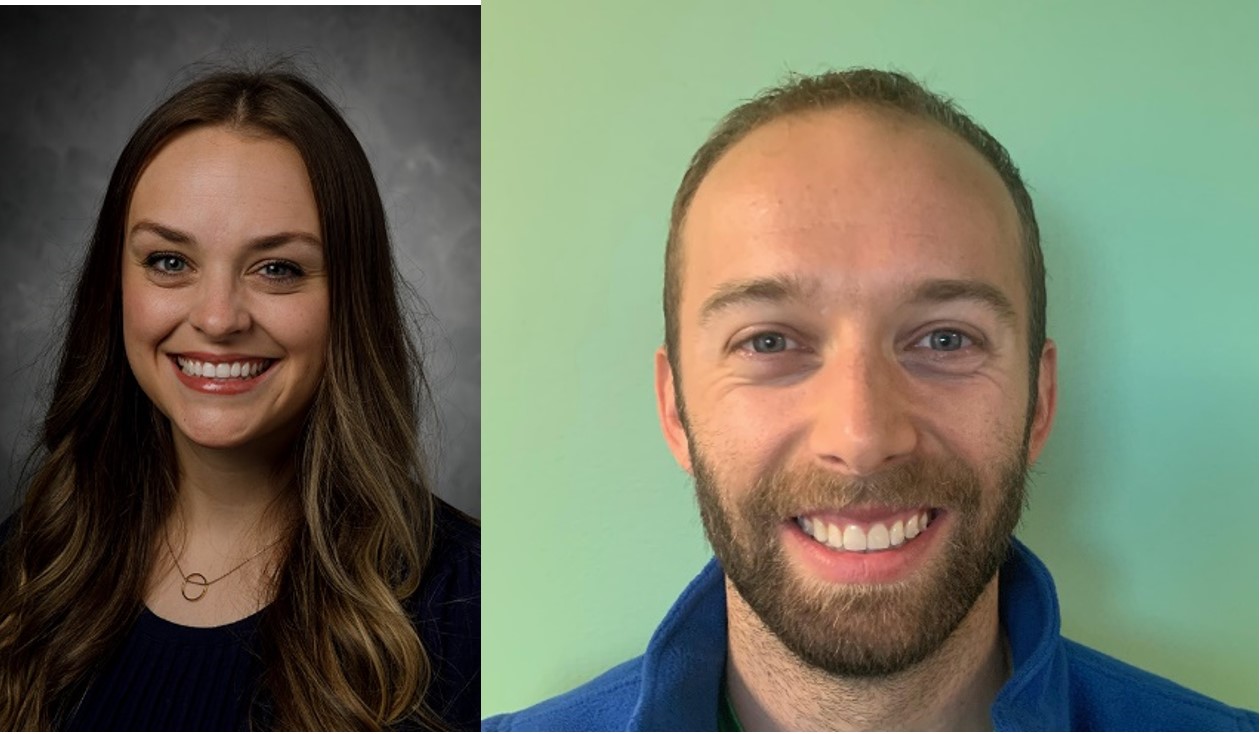
Teamwork Makes the Dream Work: Practical Tips for AAC Implementation
Thursday November 9, 2023 6:00-8:00 PM EST on Zoom
Presented by: Ainsley P. Vergara, M.Ed., CCC-SLP and Jason Dwyer MA, CCC-SLP
$25 for Non-members, complimentary for GSHA members (no code needed)
Registration closes Wednesday November 8th

Summary:
Building communication competence is a lifelong journey for many AAC users. Too often, families and clinicians assume that receiving an AAC system will solve all of the frustrations and behaviors that accompany the inability to communicate. What families and clinicians don’t always consider is the importance of the team supporting these individuals. This presentation will provide a roadmap for effectively and efficiently implementing any type of AAC system. We will provide evidence-based approaches and strategies that will help build competence and decrease the chances of device abandonment.
Learning Objectives:
As a result of this course, participants will be able to:
- Compare and contrast different AAC options, considering their appropriateness for various communication needs.
- Discuss how AAC can enhance social interaction, participation, and quality of life.
- Articulate importance of individualized AAC plans and list 3 strategies for implementation.
- Explore effective strategies for building consensus and fostering a collaborative approach to AAC implementation within a team.
- Identify resources to stay updated on emerging technologies and trends in the field of AAC.
Time Ordered Agenda:
- 6:00-6:05 pm: Introduction
- 6:05-6:30 pm: Types of AAC Systems
- Compare and contrast different AAC options, considering their appropriateness for various communication needs.
- 6:30-6:40 pm: Benefits of AAC
- Discuss how AAC can enhance social interaction, participation, and quality of life.
- 6:40-7:20 pm: AAC Assessment and Implementation
- Understand the importance of individualized AAC plans and strategies for implementation.
- Understand the importance of carefully selecting vocabulary for AAC users.
- Differentiate between core vocabulary (high-frequency words) and fringe vocabulary (less frequently used words) in AAC.
- Learn strategies for tailoring vocabulary selection to an individual's communication needs and goals.
- Acquire practical tips for overcoming obstacles and ensuring consistent and meaningful AAC use.
- Explore effective strategies for building consensus and fostering a collaborative approach to AAC implementation within a team.
- Discuss the significance of training communication partners (e.g., family members, teachers, therapists, and caregivers), to support individuals who use AAC effectively.
- Identify common challenges in gaining support from team members (e.g., educators, caregivers) for AAC use.
- Recognize legal and ethical responsibilities related to AAC implementation and accessibility.
- 7:20 pm- 7:40 pm: Case Studies and Success Stories
- Analyze real-life case studies and success stories involving AAC to illustrate its effectiveness and impact on individuals' lives.
- 7:40-7:50 pm: Future Trends and Developments in AAC
- Stay updated on emerging technologies and trends in the field of AAC.
- 7:50-8:00 pm: Question and answer session

Speaker Biographies:
Jason Dwyer has been working at Children’s Healthcare of Atlanta as an assistive technology specialist in the outpatient and in-patient setting for more than 8 years. Along with working within the hospital setting, he also has experience working with AAC users and teams in the home, clinic, and school settings. He is the vice chairman of the board for Camp Speak. He deeply enjoys educating families and empowering users of AAC. During his free time, he enjoys hiking, training for triathlons, and spending time with his family and friends.
Ainsley Vergara is a clinical assistant professor at the University of Georgia, where she provides instruction for both graduate- and undergraduate-level speech-language pathology students. Prior to her faculty appointment, she worked as a speech-language pathologist in K-12 schools, home health, clinic, and nonprofit settings. Her passions include graduate clinician supervision, caregiver-centered intervention, complex communication needs, and augmentative and alternative communication (AAC).
Disclosures:
Jason Dwyer:
- Financial: Employed by the Children’s Healthcare of Atlanta
- Non-financial: No relevant non-finacial disclosures
Ainsley Vergara:
- Financial: Employed by the University of Georgia Communication Sciences and Disorders department and UGA Speech and Hearing Clinic
- Non-financial: Member of the Continuing Education and Higher Education committees of Georgia Speech-Language Hearing Association


|